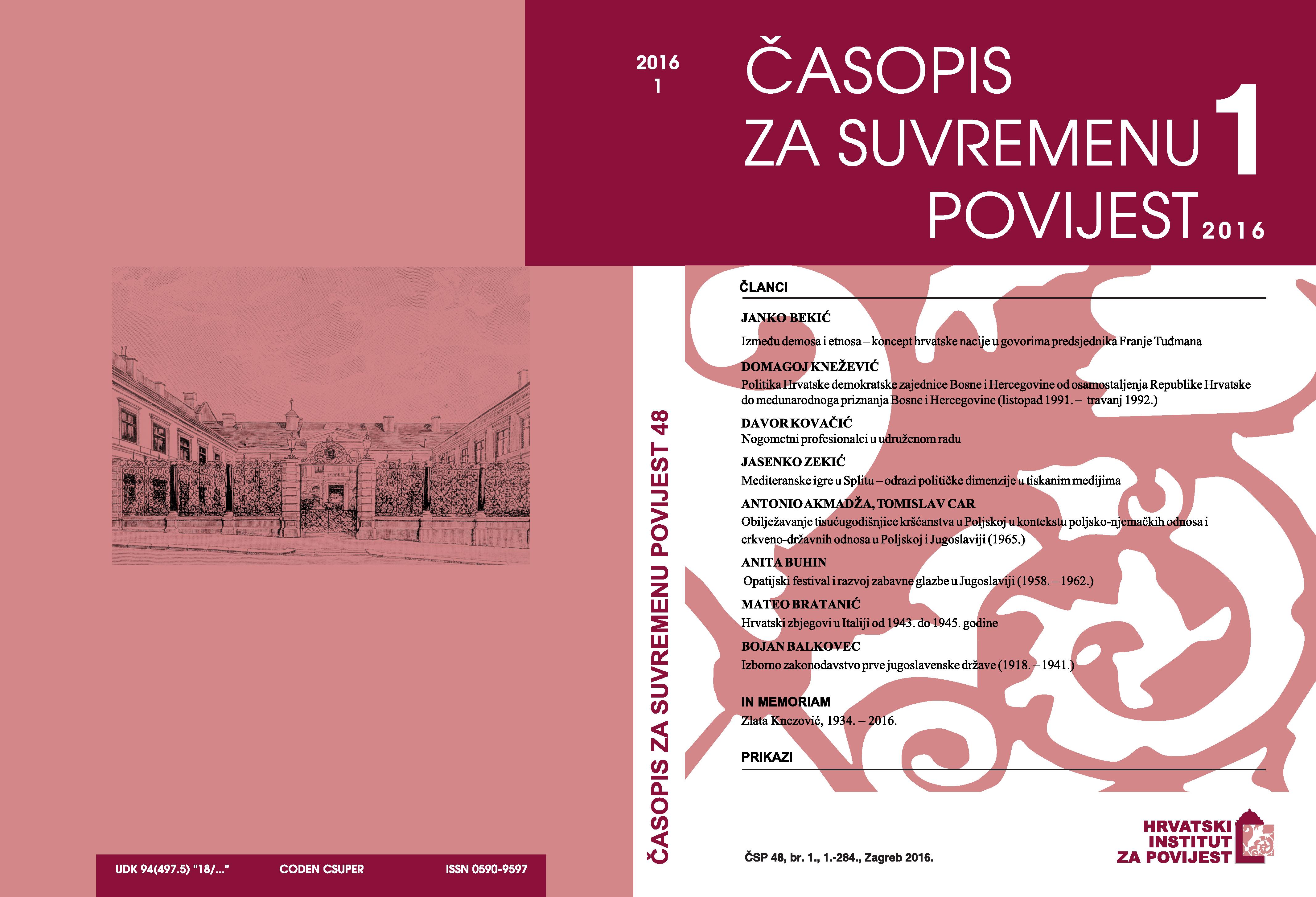Politika Hrvatske demokratske zajednice Bosne i Hercegovine od osamostaljenja Republike Hrvatske do međunarodnoga priznanja Bosne i Hercegovine (listopad 1991. – travanj 1992.)
The Policy of the Croatian Democratic Union of Bosnia and Herzegovina from the moment of the Republic of Croatia’s gained Independence to the International Recognition of Bosnia and Herzegovina (October 1991 – April 1992)
Author(s): Domagoj KneževićSubject(s): Diplomatic history, Political history, Transformation Period (1990 - 2010), Post-Communist Transformation
Published by: Hrvatski institut za povijest
Keywords: the Croatian Democratic Union of Bosnia and Herzegovina; Bosnia and Herzegovina; Croatia; the Parliament of the Republic of Croatia; international community;
Summary/Abstract: The paper describes the policy of the Croatian Democratic Union in Bosnia and Herzegovina from October the 8th 1991 when the Croatian Parliament reactivated their decision on the Croatian independence, until April the 6th 1992 when the international community recognized Bosnia and Herzegovina. It is written on the basis of the party documents, testimonies and media appearances by the party leaders. The Croatian Democratic Union of Bosnia and Herzegovina was the party which had won the absolute political support of Croats in Bosnia and Herzegovina at the first democratic elections, and then together with coalition partners – Party of Democratic Action and Serbian Democratic Party of Bosnia and Herzegovina they established a joint government on all levels. Consequently, without the reconstruction of their activities in the period which is the theme of this paper, it is not possible to understand the sequence of historical events that had led to the international recognition of Bosnia and Herzegovina. The paper therefore attempts to clarify the attitude of the party towards many important political issues of that time, such as the question of the aggression of Serbia, Montenegro and the Yugoslav National Army on Croatia, the collapse of communist Yugoslavia, the cooperation with coalition partners who had different opinions on the future of Bosnia and Herzegovina and the Federal Republic of Yugoslavia, the relation to the party headquarters in Zagreb, but also the reasons of the conflict between the two fractions within the party, which had developed over time due to the different views on the political future of Croats in Bosnia and Herzegovina.
Journal: Časopis za suvremenu povijest
- Issue Year: 48/2016
- Issue No: 1
- Page Range: 33-66
- Page Count: 34
- Language: Croatian

